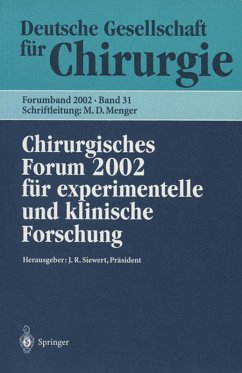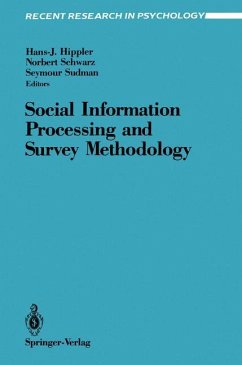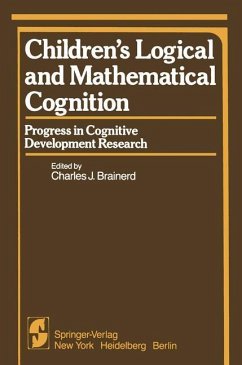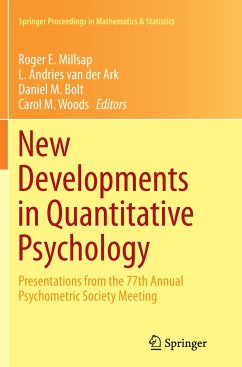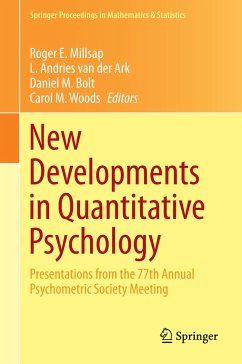
Contributions to Mathematical Psychology, Psychometrics, and Methodology

PAYBACK Punkte
58 °P sammeln!
Contributions to Mathematical Psychology, Psycho§ metrics and Methodology presents the most esteemed research findings of the 22nd European Mathematical Psychology Group meeting in Vienna, Austria, September 1991. The selection of work appearing in this volume contains not only contributions to mathematical psychology in the narrow sense, but also work in psychometrics and methodology, with the common element of all contributions being their attempt to deal with scientific problems in psychology with rigorous mathematics reasoning. The book contains 28 chapters divided into five parts: Percep...
Contributions to Mathematical Psychology, Psycho§ metrics and Methodology presents the most esteemed research findings of the 22nd European Mathematical Psychology Group meeting in Vienna, Austria, September 1991. The selection of work appearing in this volume contains not only contributions to mathematical psychology in the narrow sense, but also work in psychometrics and methodology, with the common element of all contributions being their attempt to deal with scientific problems in psychology with rigorous mathematics reasoning. The book contains 28 chapters divided into five parts: Perception, Learning, and Cognition; Choice and Reaction Time; Social Systems; Measurement and Psychometrics; and Methodology. It is of interest to all mathematical psychologists, educational psychologists, and graduate students in these areas.









